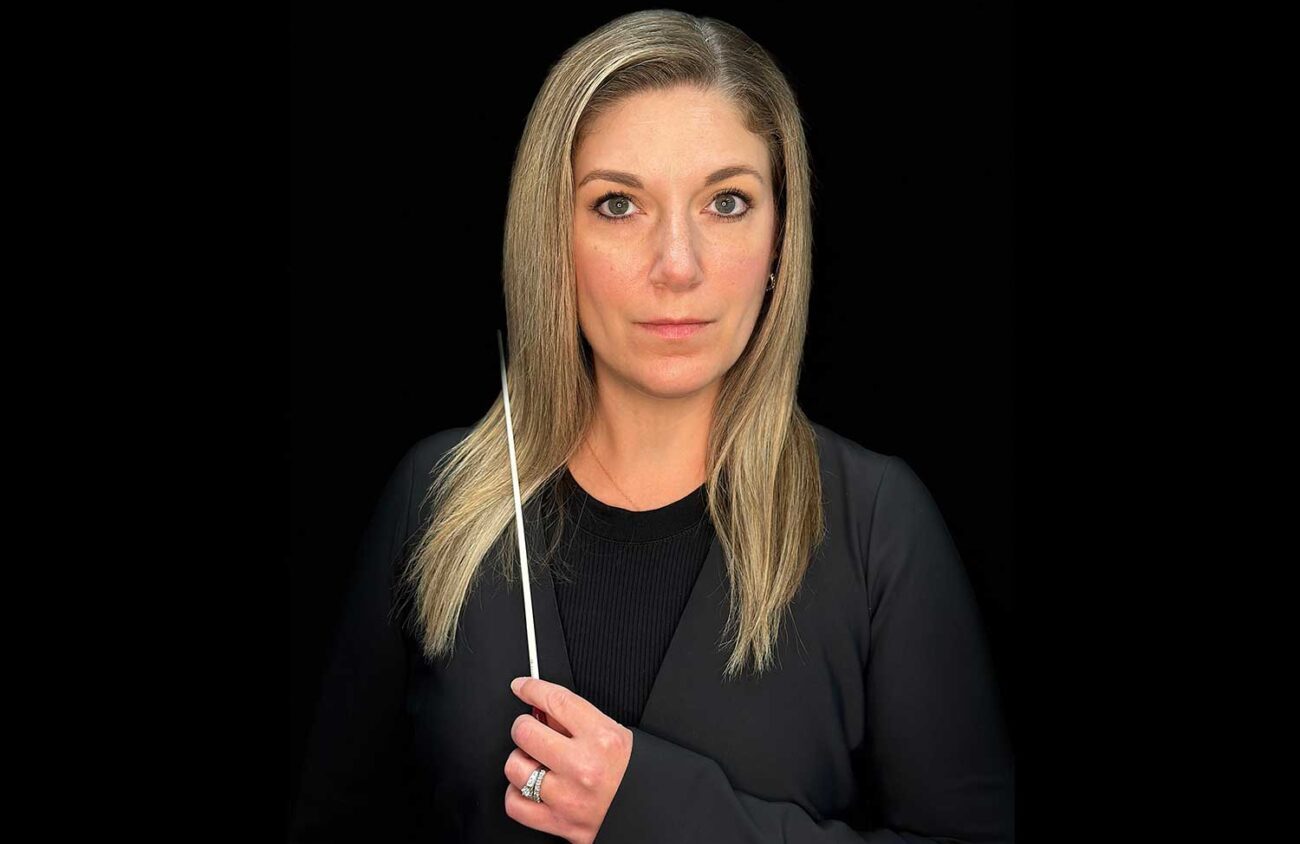Oregon Bach Festival audiences have likely heard Zerrin Agabigum Martin sing. Since 2010, the University of Michigan and Westminster Choir College-trained mezzo-soprano voice has joined several ensembles at the festival.
In OBF’s 55th season, she returns, lending her voice to a full slate of upcoming concerts, singing works by, among other composers, Gabriel Fauré and Carl Orff. She also sang in the ensemble for OBF artistic partner Craig Hella Johnson’s landmark work, Considering Matthew Shepard, staged at the Hult Center June 28.
But that’s not all. This time in Eugene, Martin is telling her story — not only what it’s like for a musician who comes to town each year to perform, which she describes as “coming back home,” but also, Martin’s experience with hearing loss in her left ear, which she lived with and persevered through as a student musician and early in her accomplished professional career.
Recently Martin, the incoming director of choral studies at the University of Tampa in Florida, received a Cochlear Osia device. While she says she still has “profound hearing loss” in her left ear, her binaural (both ears) hearing has been restored.
When she was 11, Martin tells Eugene Weekly in a phone call, an accident caused “sensorineural hearing loss in my left ear,” which means there is damage in the inner ear, along with “vestibular balance dysfunction,” linked to the inner ear.
“I was very invested in my musical studies,” she says. “I cared very deeply about it. I did my best to adjust and move forward, continuing to pursue my passion.”
As a young singer, Martin says she concealed her hearing loss, concerned with the stigma. Martin says she was already studying music when she had her accident, and after it happened, she had to navigate a new normal.
She says, “I was not comfortable with sharing my hearing impairment because I did not want my impairment to be the way that people viewed me. I wanted my work to be able to stand on its own.”
But now, she says, she wants to share her experience. Speaking to younger musicians who may face similar challenges, she says, “You are not alone. People are willing to empathize, willing to share. Know that if you love something, care about something, or are deeply invested in it, when you overcome or learn to navigate those setbacks, it becomes even more valuable.”
Hearing loss in classical musicians is not as uncommon as it may seem at first. Beethoven famously lived with impaired hearing, and so, too, did composers Bedřich Smetana, Fauré and Ralph Vaughan Williams. Estimates vary, but one recent study shows that up to 70 percent of classical musicians are on some form of hearing loss journey.
Terry Zwolan is the director of medical affairs at Cochlear Americas, the company that makes Cochlear Osia.
“Cochlear Osia is a bone conduction solution designed to improve hearing for people with single-sided deafness,” Zwolan tells EW in an email. “A bone conduction solution works by bypassing the parts of the ear that aren’t working.”
Referring to Martin, Zwolan says, “Sometimes people will make assumptions that you need to have perfect hearing to be good as a musician, but that isn’t the case.”
Zwolan adds, “I think having the Osia and being able to hear sounds better has made a dramatic difference in [Martin’s] quality of life. She has always been a very talented musician, but Osia has allowed her to gain confidence.”
As for her annual pilgrimage from her home in Florida to perform at OBF in Eugene, Martin says, many of the other musicians “sing together with other professional ensembles across the country.” For others, she says, OBF is like a reunion: The only time they see each other every season.
“We care about each other. We’re supportive of each other. It’s an honor for me to be singing with the folks on stage,” and to work with conductors and composers like Johnson, she says, who she also performs with at Conspirare, Johnson’s Austin, Texas-based choir and nonprofit performing arts and music education nonprofit.
Martin says, “The Oregon Bach Festival and Eugene are very close to my heart. The festival has been a tremendous part of my musical growth over the past 15 years.”
Zerrin Martin sings Fauré: Requiem, 2:30 pm Sunday, July 6, at Beall Concert Hall, 961 East 18th Avenue. Student tickets begin at $5. Also, hear her sing Grant Us Peace, a survey of works by composers Bach, Williams and Barber, among others, examining the intersection of conflict and peace through music 7:30 pm Thursday, July 10, and then Carl Orff’s Carmina Burana 2:30 pm Sunday, July 13, both at the Hult Center, 1 Eugene Center. Student tickets begin at $5. For more information and a complete schedule of Oregon Bach Festival events, go to OregonBachFestival.org.
